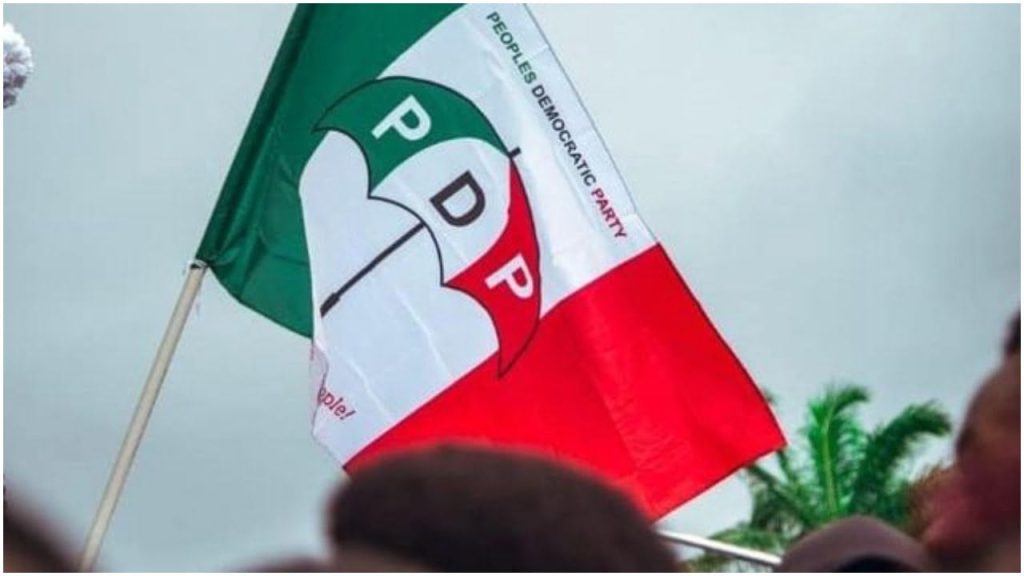The Peoples Democratic Party (PDP) has embarked on a strategic initiative to regain its political dominance in Nigeria, aiming to secure more governorship positions in the 2027 elections and ultimately reclaim the presidency. The party’s National Working Committee (NWC) recently visited Bayelsa State Governor, Senator Douye Diri, to solidify their commitment to this goal and to galvanize support within the party ranks. The NWC, represented by National Treasurer Alhaji Ahmed Yayare and National Secretary Ude Okoye, emphasized the widespread public discontent with the ruling All Progressives Congress (APC) due to economic hardship and perceived failures in governance. They positioned the PDP as the only viable alternative, capable of rescuing the nation from its current predicament and restoring democratic principles. The NWC’s visit to Bayelsa State serves as a starting point for a broader outreach to PDP-governed states, aiming to foster unity and develop a cohesive strategy for the upcoming elections.
The PDP’s revitalization strategy hinges on capitalizing on the perceived vulnerabilities of the APC. Alhaji Yayare highlighted the palpable disenchantment across the country, arguing that Nigerians are yearning for change and that the PDP is uniquely positioned to deliver that change. He painted a stark picture of a nation grappling with hunger, poverty, and public outrage directed at the APC. Yayare’s message was clear: the PDP represents the last hope for Nigerian democracy and must seize the opportunity to lead the country back to prosperity. The NWC’s confidence in the PDP’s potential stems from their belief that the APC’s unpopularity makes them vulnerable to a strong, unified opposition. The PDP aims to capitalize on this perceived weakness by presenting itself as a credible and competent alternative.
The visit to Governor Diri was not solely focused on electoral strategy; it also carried a significant message of party unity and internal cohesion. Governor Diri echoed the NWC’s call for unity, urging PDP governors to prioritize collective progress over personal ambitions. He stressed the importance of consensus-building and internal dispute resolution, warning against resorting to legal battles that could weaken the party from within. Diri’s message underscored the critical need for a unified front against the APC, emphasizing that internal divisions would only undermine their chances of success. He called for loyalty and dedication to the party, suggesting that those who prioritize personal gain over the party’s collective goals are free to leave. This emphasis on unity suggests a concerted effort to avoid the internal conflicts that have historically plagued the PDP.
Ude Okoye, the PDP National Secretary, reaffirmed the NWC’s commitment to repositioning the party and presenting a credible alternative to the Nigerian electorate. He emphasized the importance of respecting the party structure and its governors, suggesting a more collaborative approach to leadership. Okoye’s praise for Governor Diri’s leadership and developmental achievements in Bayelsa State served as an example of the kind of governance the PDP intends to promote nationwide. The NWC’s focus on repositioning the party suggests a conscious effort to project a new image of competence and unity, contrasting with the internal strife and perceived corruption that has marred its reputation in the past.
Governor Diri, in his response, embraced the concept of a broader coalition to challenge the APC’s dominance. He advocated for the PDP to spearhead the formation of a “mega party,” capable of unifying diverse political forces to address Nigeria’s complex challenges. This suggests a strategic shift towards inclusivity and collaboration, potentially drawing support from other opposition parties and disgruntled members of the ruling party. Diri’s vision of a mega party signifies a recognition that a united front is essential to effectively challenge the APC’s hold on power. This strategy implies a willingness to compromise and build alliances to achieve a common goal.
The PDP’s renewed push for power highlights the dynamic nature of Nigerian politics. The party’s emphasis on unity, strategic planning, and public discontent with the ruling party suggests a concerted effort to regain lost ground and present itself as a viable alternative. The NWC’s outreach to PDP governors and the call for a mega party indicate a strategic shift towards broader coalition building and a recognition that a united front is crucial to achieving their political objectives. The PDP’s success will depend on its ability to effectively address the concerns of the Nigerian people and present a compelling vision for the future, while maintaining internal cohesion and avoiding the pitfalls of internal conflict. The upcoming elections will be a critical test of the PDP’s revitalization strategy and its ability to translate public discontent into electoral victories.


